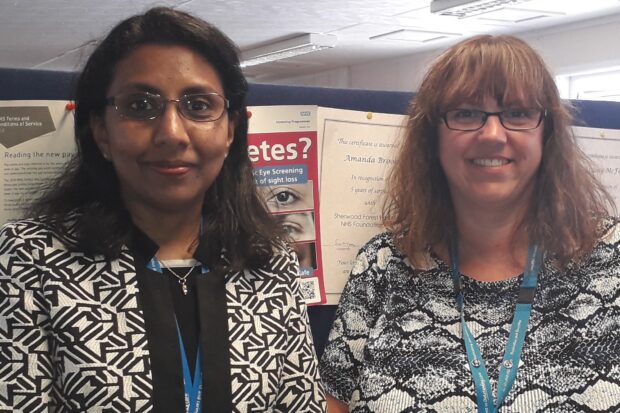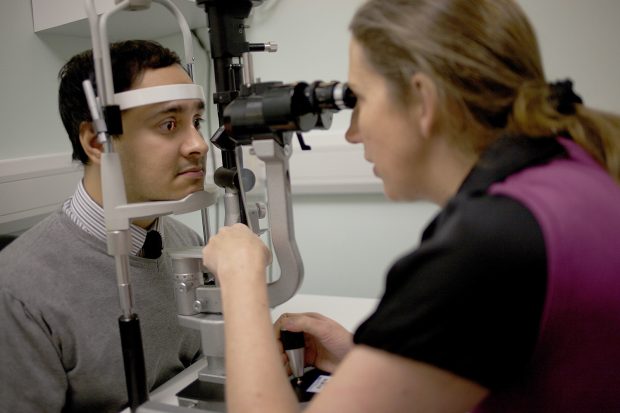
All eligible individuals should be able to access screening tests and the NHS population screening inequalities strategy sets out how we and our partners aim to tackle screening inequalities.
Local providers should make reasonable adjustments to help people with learning disabilities access services.
I am the failsafe officer for the North Nottinghamshire Diabetic Eye Screening Programme and this article explains how we worked with the family of a young man with complex needs after we had invited him to attend a diabetic eye screening appointment.
We had discussions about his suitability for screening in a community clinic but his father told us his son did not have the capacity to consent to, or opt out, of screening.
After explaining that the hospital would be better equipped to deal with his son’s eye care than a community clinic, the father agreed for his son to be suspended from screening and referred to the ophthalmology department at Newark Hospital. The hospital has access to hand-held equipment for individuals who are unable to sit still to be screened at the main testing equipment.
The young man's GP practice also agreed to the referral, which was processed to Sherwood Forest Hospitals Trust (SFHT).
The learning disability strategic lead for Nottinghamshire Healthcare Trust contacted the screening service to ask what support we could provide for the hospital appointment.
Working together in a patient-centred approach
We passed on information about the diabetic retinopathy examination process to the learning disabilities team. They suggested arranging a visit for the young man to Newark Hospital before his actual appointment so he could familiarise himself with the hospital and the eye examination process.
We made arrangements for the pre-visit by involving the screening programme’s clinical lead Prema Maharajan, the community involvement department at Newark, the outpatient sister, lead orthoptist and an ophthalmologist.
The visit was scheduled between clinics so there was a quiet and calm environment to show him what would happen at the appointment and to get him acquainted with the clinic room, equipment and staff.
The young man and his support worker were met at main reception by a member of the community involvement team.

They took him to the clinic where he was met by the outpatients sister and the orthoptist. The ophthalmologist then showed him around the clinic and gave him a demonstration of the slit lamp equipment that would be used in the examination.
A prescription was obtained for eye drops so these could be administered before his appointment.
He attended 2 weeks later for his appointment. He was anxious and needed more than one visit to gain trust and confidence with the doctor and get familiar with the tests. Desensitisation for slit lamp examination was successful on his third visit and the ophthalmologist was able to see his retina through undilated pupils.
Further visits have been planned for desensitisation for possible future screening using digital photography and drops.
This has been a great example of persistent engagement with a family and carers, clarity of communication, a patient-centred approach and multidisciplinary team working. This has all helped us to make sure that a young man with complex needs can access the important health tests he is entitled to.
PHE Screening blogs
PHE Screening blogs provide up to date news from all NHS screening programmes. You can register to receive updates direct to your inbox, so there’s no need to keep checking for new blogs. If you have any questions about this blog article, or about population screening in England, please contact the PHE screening helpdesk.